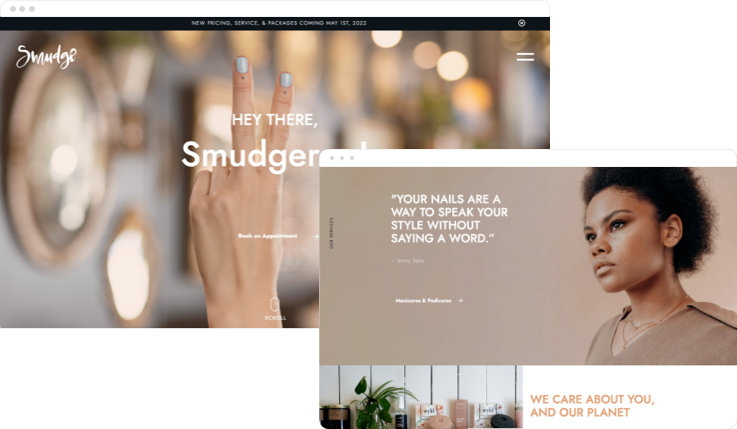
When it comes to content, we’ve talked about the importance of the principle of show don’t tell.
You have no choice but to be real with your customers in order to make a lasting impression.
Content is more than just words. It’s image galleries, before/after, case studies, testimonials, reviews, video and sometimes interactive media!
“In order to be magnetic with your ideal customer, you can’t be scared to repel everyone else.”
Don’t try to appeal to everyone, or you’ll appeal to no one.
Your content defines your identity. Google also reads your content, evaluates its structure, and grades its quality based on how consumers engage with it.
With Google Analytics running on almost every major website, Google has direct access to the data it needs to see how your sites compare to the other companies you compete with.
Here are some of the metrics that relate directly to Content:
Bounce Rate
The rate at which new visitors will leave your site after entering a particular landing page. This tells Google if a page is “sticky” and if it should continue ranking it highly in search results.
Time on Page
Fairly self-explanatory but the longer, the better Google perceives the quality of your content.
Scroll Depths
This gives Google a good idea about the user-experience and quality of your content. Engaging content will have people scrolling all the way down your page. Keyword stuffing and “walls of text” will have people looking to exit to another page, or even back to Google to explore a competitor.
Pages per Session
A good navigational experience will make it easy for visitors to click from one page to many other related pages that interest them. A good example of this is YouTube, where visitors tend to watch numerous videos before leaving.
Exit Rate
The metric you want to avoid! This represents the % of people that will leave your site from a given page. I.E. The end of their experience. Pages with high exit rates are less likely to rank in Google search results.
Developing and organizing your key content can be challenging.
Consider the following questions for some of the most important pieces of information that consumers will look for! If you can answer them then you’re well on your way to creating compelling content.
What does your business/product do?
- Do you sell products, services or both?
- What is the process you follow?
- Do you have examples you can show?
Do you have an interesting backstory?
- How did the business begin?
- What are you on a mission to accomplish?
- What is your corporate mission statement and/or vision for the future?
What is the expected result (service) or benefit (product)?
- What benefits will a customer gain from working with you or buying your product?
- Can you demonstrate case studies of past customers?
- Do you have photos or videos to showcase?
What makes you unique or better than the competition?
- Is your product or service unique, can you explain your tagline?
- Is your brand stronger? Are you part of any credible associations?
- Do you provide better customer service?

Who else have you worked with and what did they think?
- Do you have social proof like customer testimonials you can share?
- Can you link to third party review sites for added trust?
- Are you involved in the community and/or support any charities?
At WebMarketers, we offer Content Marketing Services to help businesses provide unique, engaging and
effective content strategies that amplify your voice across various platforms. Get started with our team today, contact us!



